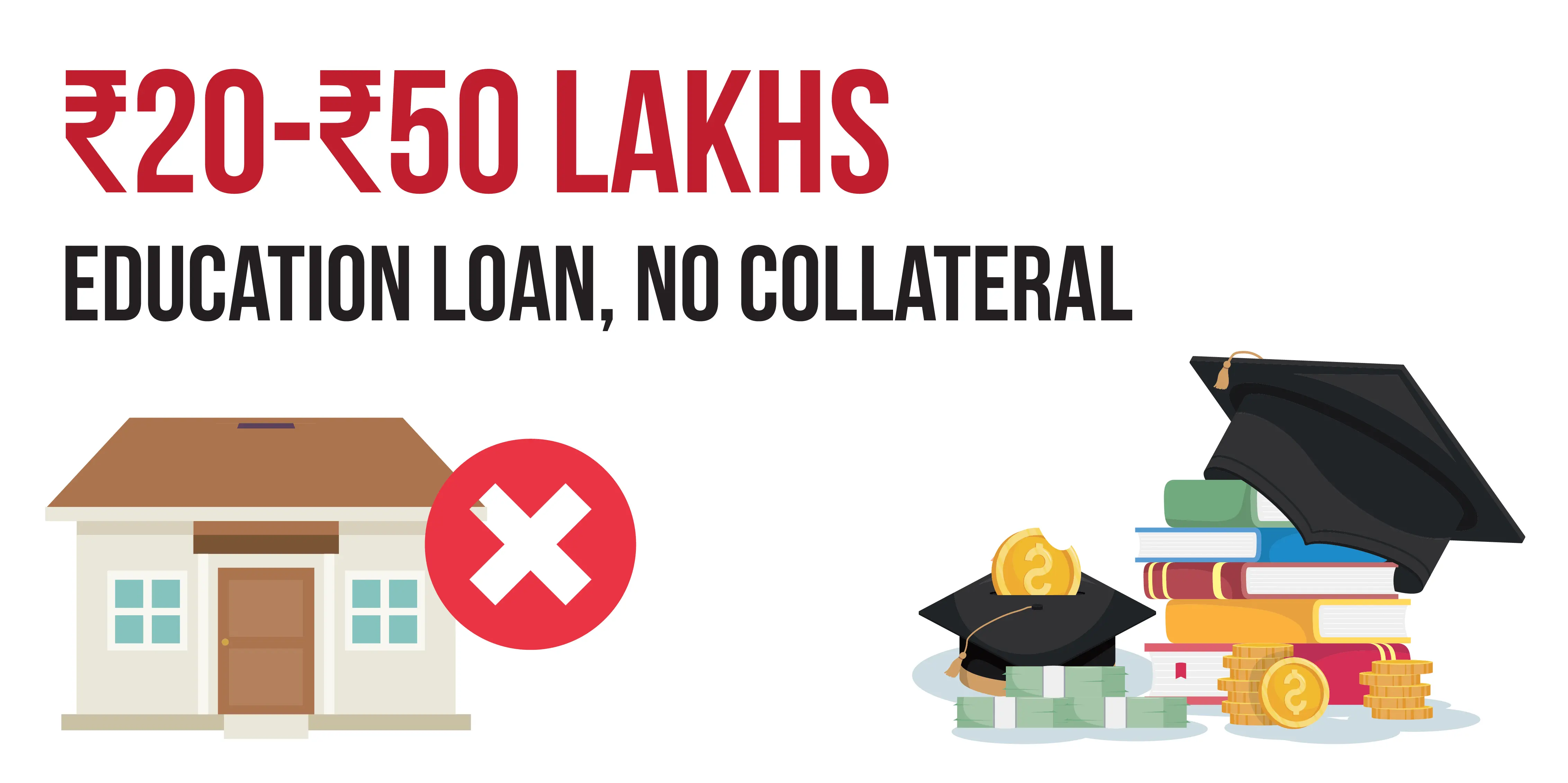https://www.wemakescholars.com/blog/education-loan-without-collateral-and-co-applicant-for-study-abroad
Study Abroad Education Loan: No Collateral or Co-applicant Needed
Non-Collateral/ Unsecured Education Loan | Updated on ()

Do you wonder if you can get an education loan to study abroad without pledging collateral or a financial co-applicant? The answer is yes! In this comprehensive guide, you will be taken through the types of education loans, conditions of eligibility, and some scenarios you can get an education loan without collateral and a financial co-applicant.
Understanding Secured and Unsecured Education Loans
- Secured (Collateral) Loans: These loans have collateral, immovable property (house, land), or liquid assets (fixed deposit, insurance policies). The rates of such loans are lower, and eligibility is less restrictive.
- Unsecured (Non-Collateral) Loans: No collateral is required for an unsecured loan. However, a financial co-applicant is most commonly required. These loans are usually required to have a strong financial co-applicant with a steady income, who files income tax returns (ITRs).
So, what if you don’t have collateral or a financial co-applicant? These are the 3 scenarios where you may still be eligible for an education loan.
Scenario 1: Education Loan for Students with Work Experience
If you have three or more years of work experience, you might be eligible for a loan without collateral or a financial co-applicant, provided you meet the following criteria:
- Minimum Salary: 35,000 INR as the last drawn monthly salary.
- University Requirement: The university should be one of the top 300 in the world.
- Loan Amount: Interest rates between 10.5 and 11%, up to 40 lakh INR.
- Programs Covered: It includes MS and MBA programs.
- Non-Financial Co-Applicant: A financial co-applicant is not required, but a non-financial co-applicant (e.g. a parent or sibling) is required for contact purposes and must have a CIBIL score of at least 685.
This is perfect for students with good work experience but who don’t possess enough collateral or a co-applicant.
Scenario 2: Loans from Foreign Lenders (Primarily for U.S. Education)
Foreign lenders provide an attractive alternative to Indian lenders for students planning to study in the U.S. who do not qualify for loans from Indian lenders. These loans are made in U.S. dollars, without collateral or a co-applicant.
- Loan Amount: Foreign lenders can give up to 80% of the total education cost in USD with 9 to 10.5% interest rates.
- Currency Exchange Impact: As these loans are in U.S. dollars, exchange rates are volatile, and a 9% USD loan rate is about a 14% rate in Indian currency. This can increase currency exchange fluctuations, which increases the repayment burden.
- Tax Considerations: Under India Section 80E, loans from foreign lenders do not provide tax benefits.
While this option can be more expensive, this is a useful backup for students who don’t meet the criteria for the other three scenarios.
A few drawbacks of the USD loan
- Currency fluctuation with INR depreciation (Ex, 1$ was 64 in Jan 2018 and today 1$ is above 70). Ultimately, you repay way higher than what you borrowed today
- No income tax benefits under section 80E
So if your profile suits any of the above 3 cases, you are eligible to get a study abroad education loan without collateral and a financial co-applicant.
Key Considerations for All Scenarios
- CIBIL Score: If a non-financial co-applicant is needed, then the CIBIL score of the co-applicant has to be better than 685. Loan rejection may be due to a low CIBIL score.
- University and Program Requirements: These loans are meant for students in reputable institutions. Lenders favour universities with high employability rates.
It can be hectic for students alone to go through the loan process, as we try our best to get students the best deal they can get. So, do reach out to our financial officers by requesting a callback.
Our team of financial officers assists you with the entire education loan process until sanction, disbursement, and beyond. All the services offered by WeMakeScholars are free of cost as this initiative is supported by the IT Ministry, Govt. of India.
Note: WeMakeScholars is an organization funded and supported by the Government of India that focuses on International Education finance. We are associated with 10+ public/Pvt banks/ NBFCs in India and help you get the best abroad education loan matching your profile. As this initiative is under the Digital India campaign, it's free of cost. The organization has vast experience dealing with students going to various abroad education destinations like the US, Canada, UK, Australia, Germany, Sweden, Italy, China, and France, among others.




Darshana Divekar
Paravesh Saireddy Scholarship Expert
Scholarship Expert